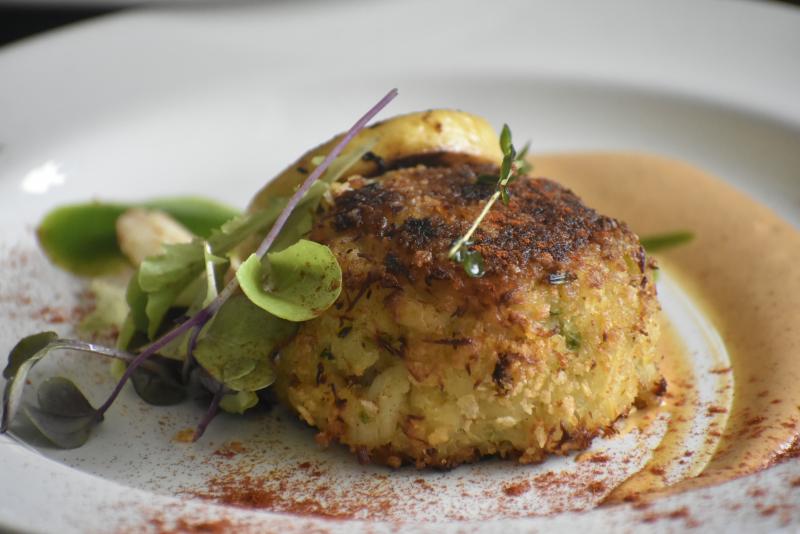
Is so-called “ropeless” fishing gear the magic bullet for the perceived problem of marine mammal interactions in California’s crab fisheries?
Several profit-driven environmental groups, including Oceana, would like the public and the California Department of Fish and Wildlife (CDFW) to believe it is.
However, not one reliable piece of data supports this claim. Marine mammal populations simply are not at any significant risk from crab gear.
Yet these groups are ramping up efforts to force California’s historic and economically most important fishery — which creates hundreds of millions of dollars annually for working families — to adopt expensive, impractical, and unworkable new fishing gear, which would force most crab fishermen out of business.
Francine Kershaw, staff scientist with the Natural Resources Defense Council (NRDC), has misleadingly asserted that, “Off the west coast, the number of deaths of humpback whales caused by entanglements are now high enough for the population to slip into decline.”
In truth, there have only been four mortalities attributed to CA commercial Dungeness crab gear since 2013, and none during the last two seasons.
Comparatively, strikes by large ships cause an estimated 50-150 whale deaths a year off the West Coast, according to the Cascadia Research Collective (CRC), a highly respected marine mammal study center.
In fact, CRC’s most recent report from March 2020 shows that through the end of 2018, there were more than 5,000 blue and humpback whales off the coast of California and Oregon. This is far more than the previously thought 3,500 figure and nowhere near dangerous levels.
Meanwhile, Ms. Kershaw, blinded by the millions of dollars being thrown at her by non-fishing special interests, has also attacked lobster fishermen on the East Coast by falsely saying, “…entanglements are driving the critically endangered North Atlantic Right whale to extinction.”
However, Maine’s lobster fishery has never had a documented serious injury or mortality for any Right whale, and no entanglement since 2002, which makes this a non-problem.
‘Ropeless’ gear doesn’t work, is dangerous
One of the problems with “ropeless” gear is that it’s a misleading term used by the profit-driven environmental groups to make it seem harmless. The East Coast lobster fishery — which has thousands of small, independent fishermen — revealed many operational issues with this gear. Most importantly, the buoy lines are packed on top of the trap with an acoustic release trigger that, in theory, allows the buoy to go to the surface when activated. In practice, this adds to the problem of lost gear with ropes and buoys attached. It’s much more dangerous to marine life because it litters the ocean unnecessarily with lost lines and other equipment.
Ropeless gear is cost prohibitive
Currently, fishing traps cost between $160-225 each. But the pop-up “ropeless” gear will cost as much as $2,500 per trap. That means for a 500-trap tier operation to adapt an existing gear allotment to 100 percent pop-up gear, it would cost between $360,000 to $1,255,000.
All this extra money would be thrown at gear that is unmanageably slow and prone to be lost at sea. It would make profit impossible. And importantly, it would make marine mammal interactions with lost gear more frequent, not less.
Conclusion
“Ropeless” gear and other new rules which the CDFW will turn into law in a few months constitutes a solution in search of a problem. These proposals being pushed by outside interests must be seriously reconsidered to reflect the negligible impact of the CA crab fishery on whales, its cultural and economic importance to our coastal communities, and the devastating potential consequences of the implementation of “ropeless” gear.
In sum, if the CDFW doesn’t ignore the political pressure from special interest, profit-driven environmental groups, the continuation of California’s crab fishery — and the thousands of families who depend on it — and indeed the future of the entire West Coast commercial fishing industry, will be in serious jeopardy.
Ben Platt is a lifelong crab fisherman and president of the California Coast Crab Assoc. and Kristan Porter is a lobster fisherman and president of the Maine Lobstermen’s Assoc. More information at www.cacoastcrabassociation.org and www.mainelobstermen.org.
The Link LonkAugust 30, 2020 at 07:44AM
https://ift.tt/3hUfrXv
Everything you’ve heard about ‘ropeless’ crab fishing gear is false - Eureka Times-Standard
https://ift.tt/2MkGRbk
Crab

No comments:
Post a Comment